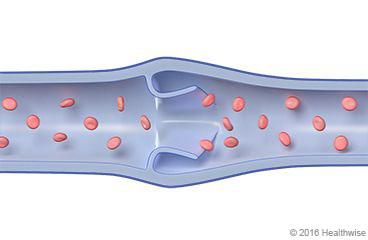
Overview
Thalassemia (say "thal-uh-SEE-mee-uh") is a blood disease that is passed from a parent to a child. It causes your body to make less hemoglobin, a protein in red blood cells. Low levels of this protein can cause anemia. This illness makes you feel weak and tired. When anemia is severe, it can harm your organs. In some cases, it can lead to death.
A person may decide to have a genetic screening test for thalassemia to see if they carry the changed gene before planning to have children. This is called carrier screening. Genetic testing can also be done before a baby is born (prenatal screening) or as part of newborn screening tests. Or testing may be done if doctors suspect that a baby, child, or adult may have thalassemia.
Should you be tested?
Thalassemia is most common in Asian, African-American, and Mediterranean people. You may want to be tested for it if someone in your family has the disease. Or maybe your family comes from a place where the disease is more common.
You can be a carrier of the disease and not have symptoms. This means you "carry" an alpha-globin or beta-globin gene that does not work as it should. If someone in your family has the disease, you may be a carrier. To check for it, all you need is a blood test.
Your test results can help you make choices about having children. If you test positive, your partner should be tested too. You can have a child with the disease even if you don't have signs of it. Your chances of having a child with serious thalassemia depend on how many abnormal genes you and your partner have.
What should you think about when choosing whether to have the test?
- Your doctor may want you to talk to a genetic counselor. The counselor can help you understand what the test results could mean.
- To learn if you are a carrier, you can get a test before you get pregnant. Knowing if you are a carrier will allow you to consider your options for having children.
- You can get a test while you are pregnant. It can let you find out if your unborn child has severe thalassemia.
- You may choose to have testing if you are pregnant and the test results will affect whether you continue your pregnancy. Or you may choose testing if the results will help you make choices about the care of your newborn child.
- You may choose not to have testing if you are pregnant and the test results will not affect whether you continue your pregnancy.
Follow-up care is a key part of your treatment and safety. Be sure to make and go to all appointments, and call your doctor if you are having problems. It's also a good idea to know your test results and keep a list of the medicines you take.
Where can you learn more?
Go to http://www.healthwise.net/patientEd
Enter V119 in the search box to learn more about "Thalassemia Genetic Screening: Care Instructions".
Current as of: March 20, 2025
Author: Ignite Healthwise, LLC Staff
Clinical Review Board
All Ignite Healthwise, LLC education is reviewed by a team that includes physicians, nurses, advanced practitioners, registered dieticians, and other healthcare professionals.

